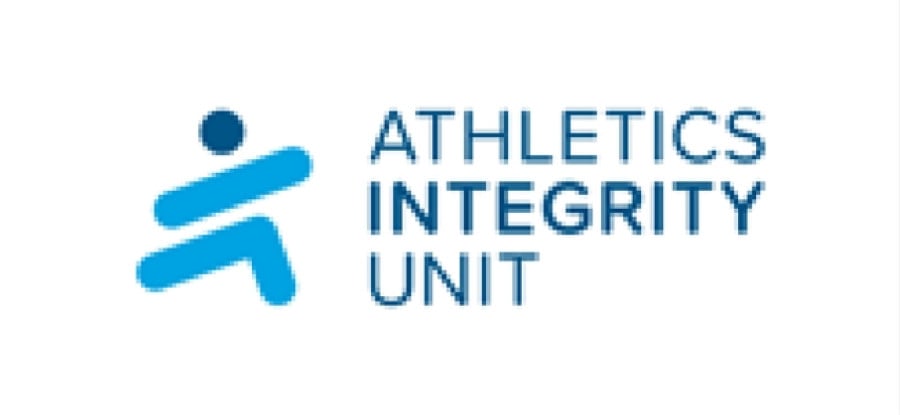Athletics Integrity Unit welcomes strong measure to enhance anti-doping framework in athletics
Press Release
30th July 2018
The Athletics Integrity Unit welcomes the announcement yesterday of important changes to the IAAF Anti-Doping Rules which will seriously advance the fight against doping in athletics.
Obligations under the previous IAAF Anti-Doping Rules largely rested with individuals, while the obligations of the Member Federations themselves were limited. It was the strong view of the Athletics Integrity Unit Board that Member Federations must also have clear obligations under the Rules and begin to play a greater part in ensuring a level playing field in the sport.
The Athletics Integrity Unit first discussed this issue with the IAAF Council in November 2017 when the Council confirmed its agreement with this important principle. The Unit subsequently conducted an extensive consultation process with Council Members, the IAAF Athletes’ Commission and all Member Federations and Area Associations before recommending amendments to the IAAF Anti-Doping Rules at the Council meeting in Buenos Aires.
“For too long the strict requirements of the anti-doping rules have fallen largely onto athletes. The IAAF Council should be congratulated for adopting innovative new Rules that also make all of its Member Federations accountable on anti-doping matters. This will help ensure lasting and meaningful change in Athletics. The Athletics Integrity Unit looks forward to working closely with Member Federations to ensure that standards are lifted and a level playing field can be enjoyed by all athletes,” said Athletics Integrity Unit Chair, David Howman.
The AIU will have the power to investigate Federations for breaches of the new obligations, require Federations to co-operate with any investigation and monitor compliance with the Rules.
Key features of the new framework
In summary, the framework builds on and enhances the “watch list” system that has been in place for the past 24 months. The framework will ensure that the IAAF Council will have greater “teeth” to deal with watch list Federations, but also ensures that all other Member Federations have reasonable and proportionate obligations to assist in the fight against doping and ensuring a level playing field for all Athletes. The new Rules come into effect in 2019.
The framework has the following key features:
- Categorisation of NFs based on risk to the sport regarding doping
- The AIU Board will have the power to categorise Member Federations into one of three groups based on the risk that the Federation poses to the sport from possible doping.
- In descending order, the categories will be: A, B and C.
- This decision will be based on specified criteria which balances identified doping risk and the amount of international success enjoyed by the Federation.
- While decisions on categorisation are still to be made, as a guide: Category A will be the smallest category including the previous “watch list” Federations; Category B will be the Federations who have international-level success in Athletics; and Category C will be the largest group with containing smaller Federations with limited international success in Athletics.
- General Obligations applying to all Member Federations
- Anti-doping Rule Violations apply to individuals, but Member Federations will now have obligations that apply to them as organisations
- For example: A Member Federation must not bring the sport into disrepute in relation to doping; and must not act negligently in relation to the risk of doping
- For example: Member Federations must conduct due diligence in relation to Athlete Support Persons they engage
- For example: Member Federations must keep a proper record of medical treatments and supplements it administers to athletes
- Specific obligations determined by category of Member Federation
- Categorising the Member Federations allows more stringent requirements to be placed on Category A Federations, compared with Category B and C Federations.
- For example: in relation to testing, all athletes in the National Team of a Category A Federation must be tested a minimum 3 times out of competition prior to an IAAF World Championships or Olympic Games (unless exceptional circumstances apply); whereas Category B Federations must take certain steps to ensure the appropriate testing authority has a testing plan in relation to the pool of athletes from which their National Team for the IAAF World Championships or Olympic Games is likely to be selected.
- For example, in relation to education, Category A Federations must have mandatory education for athletes and support persons in their National Teams; Category B and C Federations must use their best endeavours to achieve the same.
- Investigation and monitoring powers of the AIU with respect to Member Federations
- Previously, the AIU’s investigation powers only applied to individuals, but now these will also apply to the Member Federations as organisations
- The AIU will have the power to investigate Federations for breaches of the new obligations, require Federations to co-operate with any investigation and monitor compliance with the Rules.
- Council powers to determine breaches and sanctions upon recommendation of the AIU Board
- If a Federation is in breach, the AIU Board may either give the Federation an opportunity to achieve compliance or refer the matter to the IAAF Council with a recommendation
- The IAAF Council will have broad powers to deal with any Federation that is in breach of their obligations including fines, suspensions or warnings.




